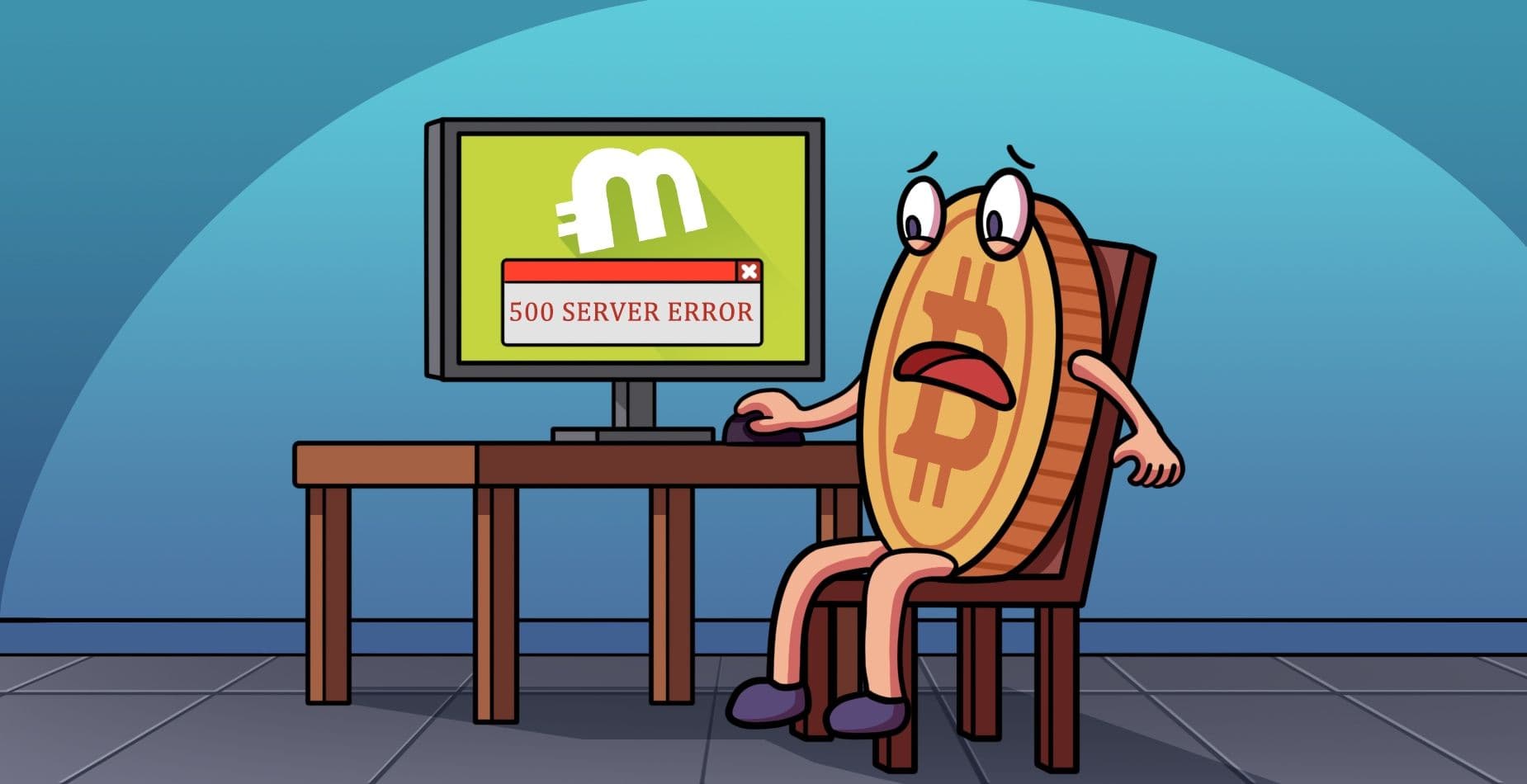From its launch in 2011 till its discontinuation in 2017, the MultiBit wallet became one of the most popular Bitcoin software clients for early crypto investors. Millions of Bitcoin holders fell in love with MultiBit wallet’s clean user interface and convenient features, including multiple wallet addresses, real-time BTC price charts, and seamless synchronization with the Bitcoin blockchain. Despite the massive success of the MultiBit wallet’s two iterations (Classic and HD), developers abandoned the project in 2017, primarily citing a lack of resources to update and maintain MultiBit’s software.
Because the MultiBit wallet was so influential in crypto history and is no longer available, it’s one of the top wallet recovery services receive calls about. To help clear up some of the confusion over MultiBit Classic and HD, it’s helpful to review the history and development of this foundational crypto project. A thorough understanding of MultiBit’s past can help people identify potential issues, speed up diagnosis, and recover MultiBit crypto assets.
The Development of the MultiBit Wallet — An Overview of the Popular BTC Software Client
MultiBit’s history goes back to September 12, 2011, when one of the wallet’s developers (Jim Burton) announced the launch of MultiBit on the forum BitcoinTalk. In his inaugural post, Burton mentioned MultiBit wallet would use bitcoinj to access the Bitcoin blockchain and work as a desktop wallet on Windows, Mac, and Linux. He also highlighted key features that separated MultiBit from other options at the time — particularly Bitcoin Core — including multiple wallet support and a small storage footprint. In addition to Burton, programmer Gary Rowe played an integral role in designing, launching, and maintaining MultiBit.
From its 2011 release till its discontinuation in 2017, anyone could download MultiBit on the official website https://multibit.org. It only took the MultiBit wallet three years to reach a record 1.5 million downloads. Indeed, in a 2014 report published on CoinDesk, MultiBit’s user base surpassed other popular wallets of the era, including Blockchain.com.
However, as MultiBit’s name became more widely known in the crypto world, it attracted attention from the wrong crowd: hackers. In February 2014, MultiBit’s team informed the Bitcoin community it had suffered multiple Denial of Service (DOS) attacks on its main website over the prior few months. In this same post, MultiBit clarified that an attack on their website wouldn’t impact the Bitcoins people had on their MultiBit wallets, since users had complete control over their private keys once they downloaded a MultiBit wallet file. Later in this post, MultiBit speculated the hackers were trying to spread fear in the crypto market by making it difficult for people to download the MultiBit wallet, potentially triggering Bitcoin panic selling. Despite these DOS setbacks, MultiBit continued to move forward with an updated version of their original wallet known as MultiBit HD.
MultiBit’s Upgrade to “MultiBit HD”
In 2013, Jim Burton revealed on BitcoinTalk that he had begun working on an updated version of the MultiBit wallet called “MultiBit HD.” In this initial thread, Burton mentioned how some users were losing their private keys, and he wanted to release a Bitcoin client with a more beginner-friendly interface to avoid security concerns. Burton also mentioned the MultiBit HD would link with hardware wallets like Trezor for additional security. From this point onwards, developers referred to the first iteration of the MultiBit wallet as “MultiBit Classic” to distinguish it from MultiBit HD.
If you were one of the many people who lost the private keys for a MultiBit Classic wallet, there’s still a chance to recover your Bitcoin. Even if you forgot or misplaced your MultiBit Classic private keys, contact crypto wallet experts at ReWallet for personalized advice on your situation.
ReWallet
At the Bitcoin2014 conference in Amsterdam, CoinDesk reporters ran a story on the MultiBit HD wallet and announced it was already in “beta” with 1,000 initial users. A key distinction between MultiBit HD and MultiBit Classic is that the latter uses a “hierarchical deterministic” standard (hence the title “HD”). In the MultiBit HD wallet, the Bitcoin private keys and public keys derive from a single seed and master private key. MultiBit HD gave users the option to create 12 or 18-word seed phrases to recover their accounts. Since the code for MultiBit Classic and MultiBit HD are different, people can’t use the information in either of these wallets interchangeably to recover their cryptocurrency.
To give a sense of the differences between MultiBit Classic and MultiBit HD, here are two screenshots of their displays for comparison:
KeepKey Acquisition and the Downfall of MultiBit Wallet
In May 2016, the hardware wallet manufacturer KeepKey made news when it announced it bought the rights to MultiBit wallet. Although KeepKey didn’t say how much it paid for MultiBit, it mentioned the transaction was in BTC and pledged to continue developing on the successful Bitcoin client. Particularly, KeepKey mentioned potentially integrating the MultiBit wallet with Bitcoin’s new Segregated Witness (SegWit) upgrade.
Alas, about one year after KeepKey’s purchase, it announced it would no longer work on upgrading the MultiBit wallet. The reasoning behind KeepKey’s swift departure from this project was due to a lack of resources to handle the updates to the Bitcoin Network. Specifically, KeepKey mentioned “the addition of SegWit” to the Bitcoin Network means “MultiBit’s software has fallen still further behind” other cryptocurrency wallets. KeepKey reasoned it would be better for users to transfer their crypto to other more updated wallets than to spend the time and resources required to update the MultiBit experience.
On MultiBit’s official GitHub, people can still see the message from 2017 warning users this wallet is now “deprecated” and advising users to move their keys to another crypto wallet. Developers recommended MultiBit users use Electrum wallet to safely transfer their crypto. Released in 2011, the Electrum wallet is another “OG” Bitcoin software client still operating today.

Struggling with MultiBit wallet recovery?
ReWallet has recovered numerous MultiBit HD and Classic wallets over the years. Wrong passwords, inaccessible backups or invalid/missing seeds, ReWallet assess the chances for a successful recovery of your wallet and help you regain access to your Bitcoin!
Recover your MultiBit walletCommon Problems with MultiBit Wallet Recovery
As mentioned above, many people with MultiBit wallets contact wallet recovery services to safely access and transfer their Bitcoin and forked Bitcoin assets (i.e., Bitcoin Cash and Bitcoin SV) to a new wallet. Since MultiBit is such an old wallet, it’s common for people to encounter many problems when trying to open their MultiBit file. Below are a few of the most common problems ReWallet hears from people with a MultiBit wallet.
Transferring Funds From an Old MultiBit Wallet
MultiBit doesn’t use a complete copy of the Bitcoin blockchain’s ledger like Bitcoin Core, and the service it used to synchronize with the Bitcoin Network is no longer operational. Plus, since development stopped one year after KeepKey’s acquisition, MultiBit has many bugs and doesn’t have the updated software to send BTC to SegWit addresses. Due to these complexities, working with professional crypto recovery services is best to ensure you’re sending BTC correctly from your MultiBit account to a new wallet. Without professional guidance, it’s easy to make a costly mistake.
Losing the Password for MultiBit Classic
Since the MultiBit Classic wallet is one of the earliest Bitcoin wallets, some people didn’t take the proper care to write down and safeguard their password. Even if people have their password, they may not be able to find it any longer, or it may have all-too-human issues like smudges or typos. However, even if you don’t have the password for your MultiBit Classic account, it’s still possible for ReWallet to get into your wallet. In fact, ReWallet has had many success stories with this very issue, so be sure to reach out to our team to see if we can help.
Losing the Password for MultiBit HD
In addition to a password, the MultiBit HD wallets gave users the option to create seed phrases with 12 or 18 words to restore the crypto in their wallets. However, just like the password associated with MultiBit Classic, it’s possible wallet owners no longer have access to their MultiBit HD seed phrase or passwords. Even without this info, contact ReWallet to see if we can assist your crypto wallet recovery.
Losing your MultiBit Backup Files
Unfortunately, it’s only possible to recover BTC from a MultiBit Classic wallet if you have your backup file. However, it’s possible for ReWallet to help users who deleted their backup file by accessing a drive or external backup medium. Also, if you have a corrupted MultiBit Classic file, ReWallet can help address this issue and potentially recover crypto funds.
Fake MultiBit Wallet Software
Sadly, countless scammers in the crypto ecosystem use popular projects to prey on BTC holders. Since MultiBit was such a popular project in its time, it inspired a lot of fake Bitcoin clients that used the “MultiBit” name. Jim Burton mentioned this issue directly on BitcoinTalk as far back as 2013. For instance, ReWallet has heard from many people who used the fake “MultiBit Core” wallet rather than the official MultiBit.






